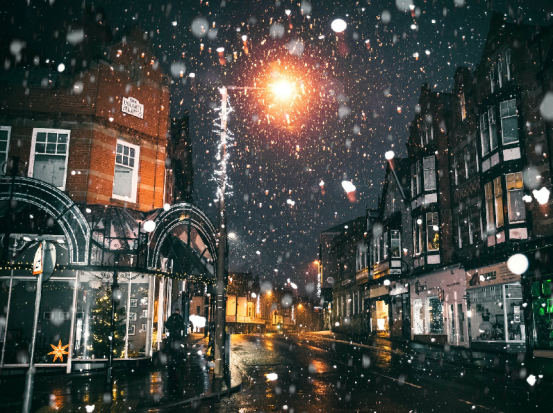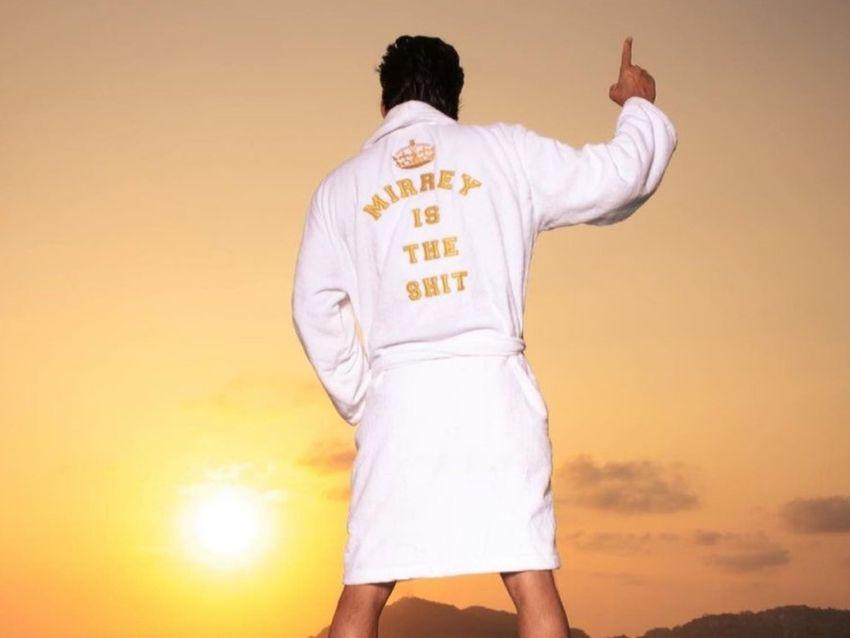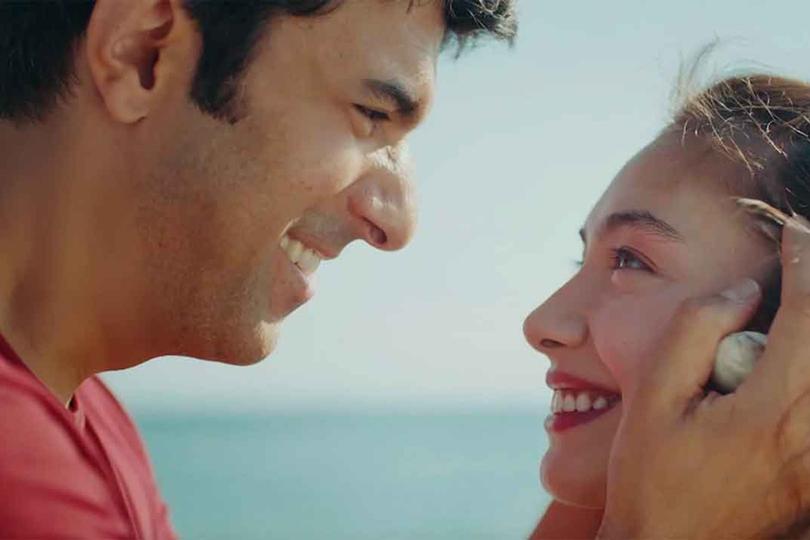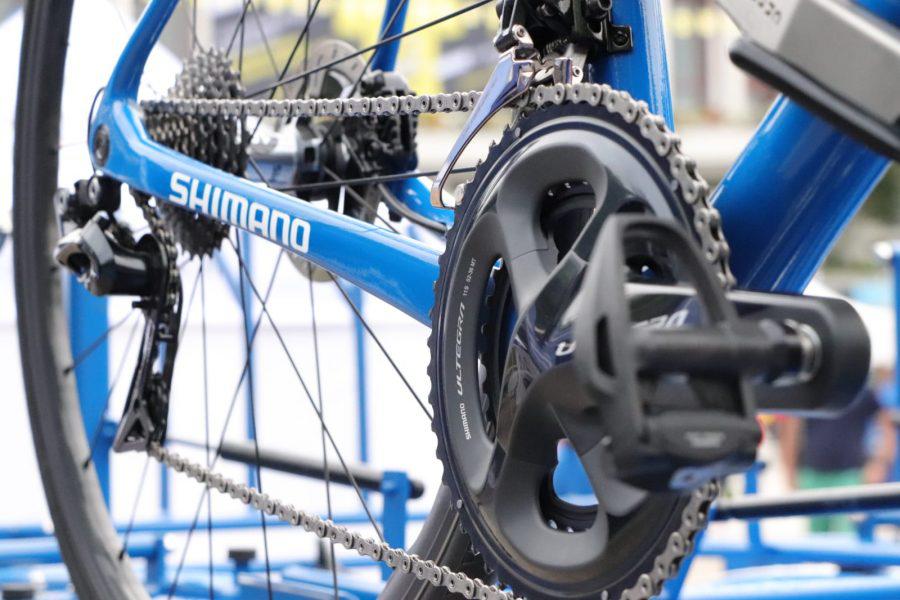Blog A Life Al Filo
A hundred years ago, in the middle of World War, one of the most unusual adventures carried out in the polar regions ended.An Irish explorer, Ernest Henry Shackleton, had proposed to cross the Antarctica from end to end passing through the pole, because "it remains to be made the most impressive of all trips: crossing the Antarctic continent" was a plan ahead of his time,Audacious, almost reckless, who revealed Shackleton's personality.And while in Europe the most cruel war that had ever met until then, a new adventure in Antarctica, the last continent that remained to explore began.A place as unknown as Mars now, wrapped by the mists of mystery and crushed by an ice layer up to four thousand meters thick.The most remote and inaccessible place on earth and, even today, the most hostile territory for the life of humans.To recruit his crew Shackleton had put an advertisement in the press that said: "Men for risky trip are needed.Little pay, very cold, long months in complete darkness;constant danger, without a guarantee of return.Honor and recognition in case of success"
To the announcement more than five thousand people responded.From adventurers with polar experience, sailors, scientists, explorers and doctors, to intrepid women, despite the fact that in the announcement it was clearly specified that they only "needed" men.To all of them, in total 28, they were pushed a powerful and romantic spirit of adventure and a diffuse promise, never fulfilled, of glory and fame.For the Shackleton expedition, he bought a ship in Norway, the polaris schooner, built based on oak plates and a thickness that in the bow exceeded the thick man.Then he renamed the ship with the name of Endurance, (resistance) in honor of his family's motto "to resist is to overcome" that perfectly summed up the character with which they were going to face one of the great modern feats.There is no doubt that Shackleton was an extraordinary boss who at that time had a good reputation to put the safety of his men above all.He also had an enormous ability to design new plans and know how to improvise at critical moments;Perhaps the best demonstrations of his intelligence.He also had an innate talent to make people follow him until the end of the world.I would certainly commit failures in the expedition but, for many to commit, Shackleton always showed greatness.He led his men in one of the greatest survival adventures of polar exploration and, in the end, risking his own life, he knew how to fulfill his promise to bring them back home.Although that expedition would then be considered as a failure - because they would not even step on the Antarctic contineas a team and, of course, know how to face adversity.
That same adventurous impulse, curiosity and, as Georges Mallory said, the "indomitable desire to discover how unexplored it beats in the heart of man" was the one that made us pursue the traces of these explorers in places like Everest, Antarctica orSouth Georgias.There I could relive those adventures that, still today, seem impossible to overcome.To do this, from the Malvina Islands, we headed on a sailboat of some French friends, La Sourire, to Georgias del Sur, the island where the great adventure of the endurance would be written.The same island where, on December 5, 1914, the Endurance would set up to Antarctica.Little by little I would continue to advance that ten weeks later, about 160 km from the Antarctic continent, the ship was surrounded by the ice and the endurance was trapped as "an almond in the middle of a chocolate bar".As the meteorologist of the expedition "the whole sea froze and we with it" had to surrender to the evidence: they were trapped in the most remote and hostile place on Earth.Just then Shackleton showed the class of leader that was.He did not lose his calm or the condemned optimism he always showed.He simply gathered his men and told them to prepare to spend the winter in the ice.And that is what they did.
Shackleton knew perfectly the tragic history of polar exploration, where serious disagreements led to tragic results, and that is why he imposed a system of essential tasks that were equally distributed.All participated in the tasks, including "the boss", as everyone called him.Shackleton struggled to have his own diet and participated doing the humblest jobs like the kitchen click.Meanwhile the endurance moved embedded inside a gigantic ice platform.They were shipwrecked, but inside their ship, in the wildest and hostile area on the planet, drifting over the ice, not knowing where they would go and without a chance of rescue.Thus seven months passed over the frozen sea that had become an icy jail.On that same ice they fought vigorous soccer games.British encyclopedia read Arratos, they had weekly gramophone concerts.Every Saturday, when they distributed the small ration of alcohol, they provided "for our lovers and wives" and then some added "because they never know!"They came to disguise themselves to make theatrical performances.They were lost, oblivious to the European world that continued to face each other in a destructive war, where the victims were already counted by millions.No one in Britain was worried about the fate of the Endurance crew.And meanwhile, outside the drama, they represented fiction scenes and invented the world.It was a surreal situation that however resulted.Shackleton knew that they would only have any possibility of survival if he managed to keep his team together.
But the disaster was just a matter of time.On October 27, ten months after being stranded, Shackleton gave order to leave the ship and recover from the endurance everything that was useful.They managed to rescue some provisions and three of the four lifeboats.Then, with hopelessness, they witnessed how the endurance was literally made splinters for the pressure of the ice.They were 28º C below zero and Shackleton, apparently quiet, told his men: "We have lost the ship and the provisions, so we will go home" Shackleton's first impulse was to go to the nearest land, about 560 kilometers, dragging the three boats, which weighed more than one ton each.But after three days of hard march the result was useless.They recognized the failure and prepared to wait for the concentric movement of the ice to end them taking open sea.The advantage of that forced wait was that Hurley and Shackleton negotiated selecting 120 negatives of the best photographs taken until then although Hurley had to dive inside the water sprinkle of water to recover them.That if Shackleton forced him to destroy the remaining 400 so they did not have the temptation to recover them.They were all aware that the rescue was impossible.They were still alive but they didn't know how long they would endure in that frightful place.In a second attempt to drag the boats, it resulted again with the failure, there was an attempt to mutiny by the McNish carpenter, who was probably still full of resentment for the death of his cat.Although Shackleton acknowledged that he was wrong, he would never forget this attempt to mutiny.As Shackleton scarce, he ordered that dogs begin to kill.He had Frank Wild, his right hand, who would write: "It was the worst work of my life.I have met many men who would shoot before the worst of those dogs "little by little the concentric movement of the ice was dragging towards the ocean.By increasing the temperature, the weather began to become finer, turn around and break.When the situation became unbearable, on April 9, 1916, Shackleton gave order to get to the boats to go to some nearby island.And very soon the 28 men had no choice but to curl up in the three canoes.In addition to the cold, which left their hands and frozen feet and clothing soaked, they could barely eat something hot all day.They shiver and the tremor prevented them from sleeping.Provisions scarce and were at the limit of their forces.Some cried, defeated by difficulties and fear.As if that were not enough, they heard the nearby orcs with their blows and steam escapes.One night in which the three canoes were tied, so that they did not separate, a large whale was about to turn the boats, which would have meant the death of much of the crew.What prevented in those moments that many men collapsed was Shacklet's tenacity and will.For seven nights, almost without sleep, the timoneles marked the course and headed to Elephant Island.In that key week for survival, Worsley's expertise and experience was vital as a navigator, something that won the respect of men.

When the forces failed in the end and tried to relieve the helm, he couldn't even stand because he had been in the same position for almost six days and just sleeping at times.On the seventh day the rocky cliffs of one of the most desolate and sinister places on the planet appeared.However, the paradise then seemed.They had dried seven months and after 497 days they stepped on again.Some could not believe it.They staggered the beach as spectra or dropped with their eyes lost on the horizon.They were ghosts consumed by fatigue, cold and hunger.Shackleton ordered the first hot meal to be prepared in three days and then set up the stores.For the first time in a long time they could sleep deeply.James wrote: "We went to bed and slept as we had never done it before, an absolute dream, of death, without dreams, without taking into account the humidity of the sacks, lulled by the graznido of the penguins"
But they were still as lost as before.There nobody would look for them.Then Shackleton, giving decision and courage again, decided to go seek help.There was no other possibility than to go to the archipelago they had left: South Georgias.For this, 1500 kilometers would have to sail for the most feared and dangerous sea in the world in a small boat less than seven meters in length.La Canoa, baptized with the name of James Caird, was repaired and improved thanks to McNish, the Ribera Carpenter of the Endurance and one of the mutineers.The joints were sealed, put on a ballast of two tons of songs shot at the bottom of the boat, so that it had greater stability, they put a rubber that covered a good part of the boat to protect themselves from the waves, except the man who went to thehelm command, and a mast with a candle.Then Shackleton chose five of his teammates to make that trip, also with very few chances of surviving.Among them was Worsley, the captain of the endurance, because it was the one who had the most experienced and largely had to stay alive and have reached Elephant Island.He would correspond to the company to hit a small lost island in the middle of the immensity of the South Atlantic.He also chose Tom Crean, a strong Irish with extensive experience in Antarctica.Crean had saved the life of chance six years before not being chosen by Scott in the group that should have accompanied him to the pole.The choice of the other three companions however is somewhat surprising.The first was John Vincent, a heavyweight champion, and McNish, the skilled carpenter, were two of the fuss, although no one doubted his strength.But his behavior could be problematic for those who stayed, so he preferred to take them with him.Finally, he would be chosen to another Irish sailor, Tim McCarthy, a hard -working young man and probably the most optimistic of the group.In Elephant Island, Frank Wild would stay, Shackleton's lieutenant, in charge of the difficult task of maintain.And on April 24, 1916, with a relatively quiet time, the Caird was thrown into the water.They loaded food for a month and began what was going to be one of the biggest odyssey lived in Antarctica.Very soon the men had to take refuge under the canvas to protect themselves from the downpour although the clothes never dried and had swollen feet.The temperature descended up to 20º below zero.They worked in four -hour shifts, relieving in two groups.While some tried to rest something on the rolled songs the other three were guarded up or shrinking the water that sneaks down all sides.Many times the waves were so great that they passed them, threatening to turn the canoe.Under these conditions the orientation work with the sextant, which needed the stable horizon, was practically impossible.In seventeen, working days could barely make four measurements, the rest of the time was oriented thanks to the experience and its great navigator skills.A single degree of error would have taken them to the catastrophe, lost in the most extensive ocean on the planet and without any land around.They were in the most frightening ocean on the planet, where the winds often exceed 200 kilometers per hour.In these latitudes the sea surrounds the earth without any mass that interrupts it.That sea, the same that we sail for almost two months, is the sea of the end of the world, a sea that on the strange occasions in which the sun shines is shown of a deep cobalt blue, although it is generally shown as what it is, a lead and deep gray sea, lifeless.Two of the men in the boat, Vincent and McNish, were in a critical situation and Shackleton was pending of them.I took their pulse and when I saw them worse, a hot drink was prepared.Many times he did depriving himself of his ration to get to his teammates.Worsley would write down in his diary: "McCarthy is the most indomitable optimist I have met.When I relieve it to the helm, with the icy boat and with waves entering Borbotones through his neck he informs me, exhausted and with a smile of happiness: "It's a great day, Lord"
Finally, when they had been crossing 16 days and were at the limit of their forces spotted the west coast of San Pedro Island.But not even in the end they could relax.Hurricane winds from the West, frequent in Georgias, pushed the boat against the cliffs which would have meant the end.Again Worsley, showing his experience, would save the situation and get away from the coast.Finally, on May 10, after 19 days of jour.Just in that same bay, almost a hundred years later, a group of seven friends sat down to look at that desolate and sad sea and remember that exceptional men.We wanted to follow Shacketon's footprints faithfully in his last great adventure.
Although it had finished one of the most impressive boat trips of all time, and finally returned to Georgias del Sur seventeen months later, however the adventure continued.To rescue their 22 companions of Elephant Island they had to reach the whaling factories located right on the opposite slope.In between was an inhospitable and dangerous territory, an unknown interior of the island where no one had admitted.It was the last difficulty that got between them and the life of their friends.The only map they had barely showed the coastline.In addition the whalers had told them that the interior of the island was impracticable.But they had no choice: it was a career for everyone's survival.And they got to work.McNish used boat screws to put them in leather boots and served as crampons to stick to the ice.While McCarthy stayed taking care of Vincent and McNish, the most fatigued, Shackleton, Worsley and Crean, started three in the morning and with a full moon.They wanted to take advantage of the night cold when the low temperatures mitigate the risk of falling in the cracks covered by snow bridges.They could not spend the night because they had neither tent or coat clothes to spend the night to satin.Very soon the march became dangerous and complicated.They also noticed the lack of exercise and adequate diet.The search for a path between the steep mountains made them miss and take several useless laps.Fortunately time was still good.They had to go through an immense ice field that at its western edge was clear in the sea.A treacherous place in case of fogs or storms, but that crossed relatively safe.That ice field, one of the largest and most beautiful of Georgias, today is named Tom Crean.There, just in that same place, we live one of the most delicate moments of our expedition because the hurricane winds destroyed a store and spent a night holding it with fear of flying inside it.
Thus, walking tirelessly, they reached a difficult step with a very inclined and dangerous slope.He was getting dark and when he arrived up Shackleton made a risky decision that proposed to his teammates.They could not spend the night so they decided to wind the rope and throw themselves on top of it, like a slide, for the steep slope without knowing what would wait for you down.Fortunately a snow bank stopped them.They solemnly gave their hand, shook the snow and continued the march.They were walking silent all night.All of them believed to see a fourth person who walked next to them, infusing them.When they had not resting 26 hours, they made a stop because they didn't stand up.Next Worsley and Crean fell asleep.Shackleton realized that the icy wind that came down from the ice field was freezing them and would probably die.So he let his companions sleep five minutes and then woke them up telling them to start up because they had already slept half an hour.Shortly after they were able to see Bahía Fortuna, a beautiful ensenada full of snappers, penguins and small rivers that arrive from the glaciers to the sea.One of the most beautiful landscapes we could see in Georgias.Opposite the latest rock foothills appear and one of the largest whaling industries in the world was built: the Stromness Factory.At eight o'clock in the morning they heard the whistle call workers to start the work day.Those three rude and tanned men were excited: it was the first sample of other human beings in many months.At three o'clock in the afternoon of May 20, three wobble men knocked on the door of the Ballenera Station Chief.He couldn't recognize them.They seemed ghosts that returned from death.Demacred, hungry, without shaving or washing in months, dresses like harapos, although before entering the factory - in a gesture of gentlemen of the Victorian era - they had tried to fix the clothes with four unmissable that Worsley wore.They finally took them before the person in charge of the factory.The first thing Shackleton did was ask if the war was over.No, he replied, "men die to millions.Europe has turned crazy.Has the world gone mad"
In that same place we embrace.Shackleton, Crean and Worsley had spent 36 hours of continued march, in extreme conditions and weakened by months of hardships, with an inappropriate team even to walk in winter through the Pyrenees.They would have to spend months before they also managed to rescue their companions of Elephant Island.But they also achieved it.We had taken three and a half days.We slowly walk through the remains of Stromness, with the certainty and the joy of having followed the steps of a generation of unrepeatable men.We are happy to have repeated a legendary walk.Knowing that they were bigger because they made more with less.Because they faced difficulties and risks that seem inconceivable today.We embrace and remember those brave and rude types that, after three attempts, would be able to rescue Asus companions of Elephant Island.We are excited because we know that what is experienced is unrepeatable.
Then we are going to pay our particular tribute to the Cemetery of Gritvyken, where Shackleton is buried.Six years of his exceptional adventure would return to Georgias with some of his fellow endorsers and that same day he would die of a heart attack.He was buried right there while one of his teammates played with a banjo the crib song by Bhams.In the back of his tombstone there is a verse from Robert Browning, which may be a symbol of the life of the great British explorer: "A man has to strive until the end for the price at which he has set his life"
Epilogue: Many of those great men died poor, although rich in memories.Like the optimist McCarthy, who as soon as he arrived was volunteered and died very shortly after at the foot of the canyon.That island we saw in the bay of King Haakon today bears his name.Like Frank Wild, the right hand of the boss, which was established in South Africa where he ruined.A journalist discovered him in a Zulu village making bartender for 4 pounds monthly.They got a small pension but Wild died a few months later shattered by the drink and perhaps for the memories.The same that persecuted Frank Worsley who in 1934 went to look for a treasure at the Pacific, something he had already talked about with Shackleton.Or Frank Hurley, who always felt admiration for Shackleton.Some of the photos of the war are, just like those of the endurance, authentic works of art.None of them would forget that tremendous survival adventure.And many continued to dream of returning to the Earth's confine.As veteran Tom Crean, who would open a pub that he would named "Pole Sur".Perhaps because, as Shackleton was written, and we have discovered in San Pedro, "there we had heard the echo of nature, we had reached the naked soul of man"


























Winter Prep List: How to Get Ready for Winter
06/06/2022Are you prepared for winter? It's not too late to get ready, but you'll want to take care of some important tasks in order to make sure you're prepared for the cold weather. This winter pr...